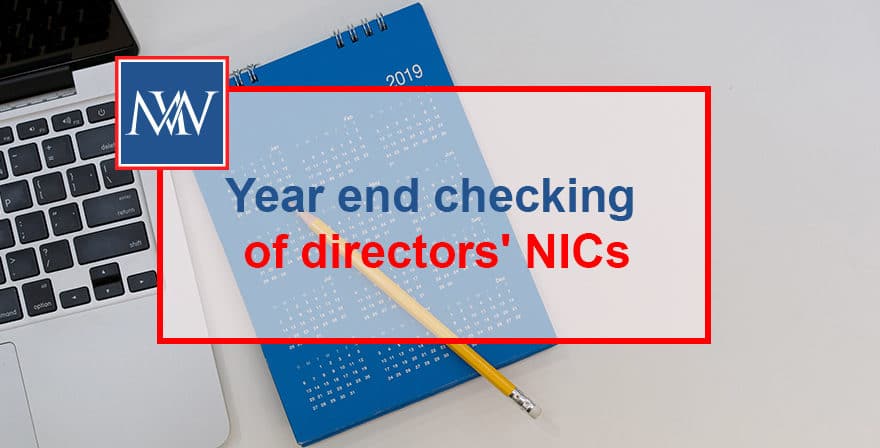
Year end checking of directors’ NICs
Topic: Year-end checking of directors’ NICs
To prevent manipulation of the NIC earnings period rules to reduce contributions, directors liable to Class 1 contributions will have an annual earnings period, however often they are paid.
The non-cumulative nature for calculating employee Class 1 NICs makes it possible to manipulate earnings to reduce the overall amount payable by taking advantage of the lower rate of primary Class 1 contributions payable once the upper earnings limit has been reached. For example, an employee who is paid £3,000 for each month of the tax year will pay considerably more in primary contributions than someone who is paid £600 for 11 months and £29,400 for one month, even though their total earnings for the year are the same.
Since company directors often have greater scope to influence the time and amount of payments they receive as earnings, special rules exist which provide that a director’s earnings period is a tax year. As the end of the tax year approaches, it is worthwhile checking to make sure that all company director NICs have been calculated correctly.
There is an exception to the above rule where a director is first appointed during the course of a tax year. Where this happens, the earnings period will be the period from the date of appointment to the end of the tax year, measured in weeks. The calculation of the earnings period includes the tax week of appointment, plus all remaining complete weeks in the tax year (i.e. week 53 is ignored for this purpose). This is known as the pro-rata earnings period.
Example
Mr Green is appointed to the board of directors of A Ltd in week 44 of the tax year. The primary threshold and upper earnings limit are calculated by multiplying the weekly values by 9 because the earnings period starts with the week of appointment. This means that in 2019–20, Mr Green will pay NIC at the main rate of 12% on his director’s earnings between £1,494 (9 × £166) (the primary threshold) and £8,658 (9 × £962) (the upper earnings limit) and at the additional 2% rate on all earnings above £8,658 paid up to 5 April 2020.
Leaving the company
It is also worth checking as to whether any directors have left during the year. Again, to prevent manipulation of the rules, directors ceasing mid-year retain an annual earnings period for the remainder of that year and the next year in relation to earnings from the same employer.
Who does the annual earnings basis affect?
Towards the end of the tax year, a check should be made to ensure that the annual earnings basis is being used for the correct people. There may be people within the organisation who are called directors, but for whom that is just an honorary title.
The definition of ‘director’ is wide and extends beyond someone registered as a director with Companies House. For these purposes a director means:
- in relation to a company whose affairs are managed by a board of directors or similar body, they are a member of that board or similar body
- in relation to a company whose affairs are managed by a single director or similar person, that director or person
- any person in accordance with whose directions or instructions the company’s directors (as defined above) are accustomed to act
However, a person giving advice in a professional capacity is not treated as a director.
Companies often find it easier to calculate directors’ NIC in a similar way to other employees, spreading contributions throughout the year. A recalculation on an annual basis should be performed when the last payment of the year is made and any outstanding National Insurance due can be paid at that time.
For more information, Book a Free Consultation
Need Accountancy Support?
For information on bespoke training, or if you have any other questions for Makesworth Accountant, please fill in your details below




















 148
148